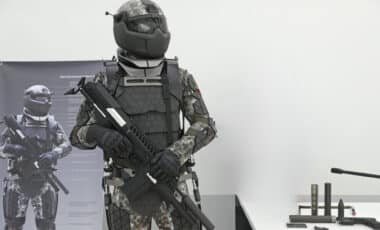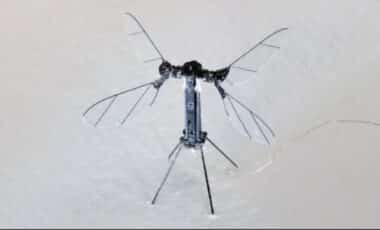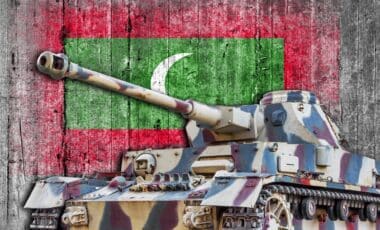Five friends, the 21-year-old officer Wilhelm, his two-year-younger brother Friedhelm, and the 20-year-old Viktor, Greta and Charlotte (called by their friends Charly), meet in Berlin in the summer of 1941 to say good-bye. Wilhelm and Friedhelm have to be soldiers of the Wehrmacht and will be sent to the Eastern Front; Charlotte will follow them as a volunteer. Greta wants to become a singer. They want to meet again in Berlin for Christmas 1941. After the end of the war in 1945, and after the death of two of them, it becomes harder for them.
[junkie-toggle title=”Season 1″ state=”closed”]
Episode 1: Eine andere Zeit (A Different Time)
Berlin, summer 1941: Wilhelm, Friedhelm, Charlotte, Viktor and Greta meet to say their farewells. Little do they know how war will change them.
Run Time: 1h 30m
Episode 2: Ein anderer Krieg (A Different War)
Sommer, 1943: As the war progresses, the soldiers realize they are not fighting the war that they expected. Charlotte and Greta must live with the consequences of their choices, and Viktor and Wilhelm find themselves on the run.
Run Time: 1h 28m
Episode 3: Ein anderes Land (A Different Country)
The German Army begins to retreat from the Eastern Front, and all five friends must decide who to side with in order to survive and fulfill their pledge to reunite in Berlin.
Run Time: 1h 34m [/junkie-toggle]
[better-reviews]
[junkie-toggle title=”#1. READ THE FULL REVIEW” state=”closed”]
Unsere Mütter, unsere Väter (Generation War) is a television three-parts mini-series from 2013, produced for the German television network ZDF. The trilogy was written by Stefan Kolditz and directed by Philipp Kadelbach. In the leading roles, we see Volker Bruch, Tom Schilling, Katharina Schüttler, Miriam Stein, and Ludwig Trepte.
The production cost was 14 million Euros. The series was shot in three countries, Lithuania, Latvia, and Germany.
One of the main characters is the Wehrmacht soldier Wilhelm Winter (played by Volker Bruch), who fights with his brother on the Eastern Front.
The plot is actually fictional. But there was a man, who used to not only look like the movie character Wilhelm, but also shared his fate; his name was Johannes Werner Günther.
In the trilogy, Wilhelm’s troupe invades a Russian village, and a SS man shoots a little girl. Johannes Werner Günther, who back in 2013 was 92-years old and fought as a soldier of the Wehrmacht, is reported to comment about the series:
“We had a similar situation. We stayed in a village southwest of Moscow, it was minus 40 degrees Celsius, and the women gave us their last leftovers. In the morning we lit their houses. Mothers knelt in the high snow and held out their little children, begging for mercy, which we didn’t give. They were doomed to death. It was pure horror.”
He also said: “It was gruesome when your comrade suddenly holds a shot-off arm in his hand instead of his rifle. You can only look at this mutilated body and keep shooting while he is dying. You had to put some sort of tank around your heart, and stop thinking.”
The five main characters are presented quickly and fairly superficially. The two brothers Winter will be going to war; the book-freak Friedhelm (Schilling) for the first time, supervised by his already hardened big brother Wilhelm (Bruch). The cheerful, imagined movie star Greta (Schüttler) breaks the law and socialise with a Jewish tailor Viktor (Ludwig Trepte). Charlotte (Stein), finally, looks forward to serving the Reich as a nurse, and she is also in love with Wilhelm. The year is 1941 and the time for quick victories and triumph will soon dry up. That all their illusions crash with reality feels very obvious and real.
The series shows power and courage. It is undeniably both courageously, interesting and relatively unusual to see Operation Barbarossa from this perspective – when ordinary soldiers are specifically forced to realise that it is not only the SS that is expected to do things that go beyond the ordinary; to shoot political commissars, for example. Older brother Winter also has another concern to be struggled with: the younger brother’s reluctance to register as a volunteer for dangerous missions and that contempt raises with the comrades. Friedhelm’s pride, which can take almost brave forms, is interesting among other things because it almost provokes the viewers. In almost all eyewitness accounts of the war from the soldier’s perspective, the main motivation is to not let down, or prove cowardly too, the comrades. Here we have a young man who, at least initially, seems to ignore this and even dares to say a lot about the larger contexts.
This series is heavy stuff, and dramaturgically, it is also an ‘impossible’ series. When the young hearts do what the Reich expects of them, it is not what the viewer thinks they should and when they fail or even intentionally do something wrong, you do not get much happier about it. Here you don’t get the relatively cosy, and uncomplicated wartime story, which is so common in many movies, but a story of impossible choices and the sick situation that the young Germans of the ‘40s were faced with. Without making them poor victims, they are presented as both co-responsible and painted in a bloody corner.
The war is nothing you can leave when you realise exactly how dirty it is. No matter how enthusiastic, or the opposite they were from the beginning, they are exactly the same. There is also space for scenes that go a little outside of the waiting, as when Friedhelm’s boots splash in deep, bloody dyes or when, after a short rest, he opens his eyes and sees a wolf in front of him. The battle accounts follow the modern standard and can withstand most of the genre in terms of nervousness and the desirable mixture of chaos and intelligibility.
“Generation War” has been criticised both for depicting the German soldiers as victims and for producing Polish partisans as irreconcilably anti-Semitic. The latter criticism may well be justified. Regarding the ‘unnecessarily forgiving’ attitude towards German soldiers, it is less obvious to agree. Here we see ordinary Wehrmacht soldiers being involved in actions that are often completely blamed on SS Sonderkommando. The latter was a picture that, not least the German generals worked hard to instil when the war was over, and even though it was questioned and looked at from the beginning, it also had an impact. According to the unspoken myth, the ordinary Wehrmacht soldiers did not take part in the Holocaust, but only fought against the communists. This series doesn’t spread that myth.
But of course, one gets the feeling that everyone is a victim, in the end, even those who originally welcome the war and happily enter it. Most notably, Friedhelm’s personal journey from being a reluctant soldier to an efficient but glorious death machine.
Written and Reviewed by Göran Hedlund
[/junkie-toggle]
#1. Polish and Russian Critisism
The portrayal of anti-Semitic Polish resistance fighters in the trilogy provoked fierce criticism in Poland. The Russians were outraged also as they claim the trilogy covers the cold-blooded crimes of the Wehrmacht on its eastern front.
The ZDF war drama ‘Unsere Mütter, unsere Väter’ did spark outrage by Russians. An organisation, led by Minister of Culture Vladimir Medinsky in Moscow, accused the ZDF of damaging the memory of people murdered by German soldiers in the Soviet Union.
“The three-part series shows “inhumane behaviour” of individual Soviet soldiers and thus covers the cold-blooded crimes of the Wehrmacht on its eastern front.”
#2. Ludwig Trepte
Ludwig Trepte, who portrayed Viktor Goldstein in Generation War also starred in the more recent mini-series Line of Separation, which was also a production of ZDF.
#3. Katharina Schüttler
Katharina Schütller, who stars as Greta, also features in the movie Elser also known as 13 Minutes (2015).
We’re always looking for reviews, plots, synopsis, press releases, stills, trailers (free to use), corrections and other interesting information or facts about any of the listed series and movies, if you can help, please contact us.








